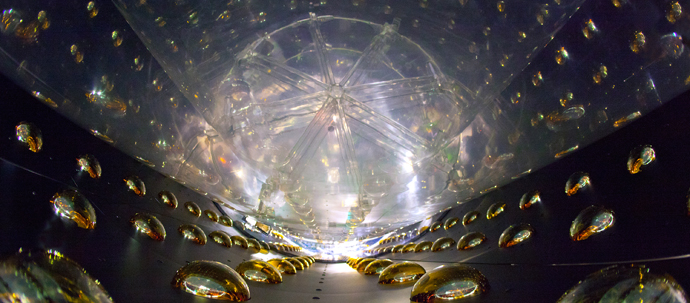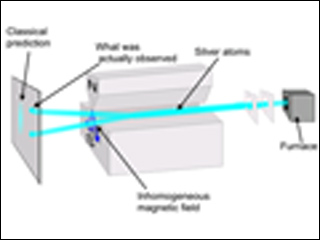
The inside of the Daya Bay Antineutrino Detector in China. (Image courtesy of Brookhaven National Laboratory on Flickr.)
Featured Courses
The MIT Department of Physics has been a national resource since the turn of the 20th century.
Our Department has been at the center of the revolution in understanding the nature of matter and energy and the dynamics of the cosmos. Our faculty - three of whom hold Nobel Prizes and 21 of whom are members of the National Academy of Sciences - include leaders in nearly every major area of physics. World leaders in science and engineering, including 10 Nobel Prize recipients, have been educated in the physics classrooms and laboratories at MIT. Alumni of the MIT Department of Physics are to be found on the faculties of the world's major universities and colleges, as well as federal research laboratories and every variety of industrial laboratories.
Our undergraduates are sought both by industry and the nation's most competitive graduate schools. Our doctoral graduates are eagerly sought for postdoctoral and faculty positions, as well as by industry.
The MIT Physics Department is one of the largest in the nation, in part because it includes astronomy and astrophysics. Our research programs include theoretical and experimental particle and nuclear physics, cosmology and astrophysics, plasma physics, theoretical and experimental condensed-matter physics, atomic physics, and biophysics. Our students - both undergraduate and graduate - have opportunities to pursue forefront research in almost any area.
All undergraduate students at MIT study mechanics, electricity and magnetism. Beyond that, our physics majors pursue a program that provides outstanding preparation for advanced education in physics and other careers. Our undergraduates have unusual opportunities for becoming involved in research, sometimes working with two different groups during their four years at MIT.
In addition to courses, supplementary physics resources are also available. Various MIT faculty are openly sharing these resources as a service to OCW users.
Physics Courses
Archived Physics Courses
Some prior versions of courses listed above have been archived in OCW's DSpace@MIT repository for long-term access and preservation. Links to archived prior versions of a course may be found on that course's "Other Versions" tab.
Additionally, the Archived Physics Courses page has links to every archived course from this department.














